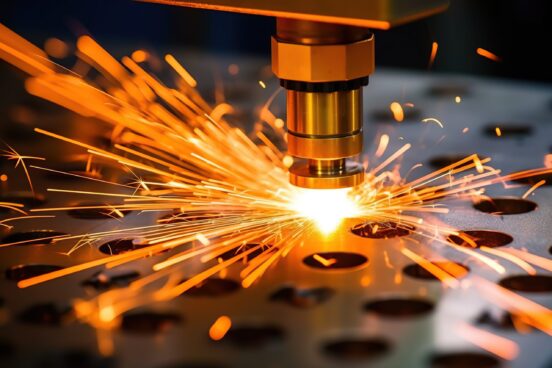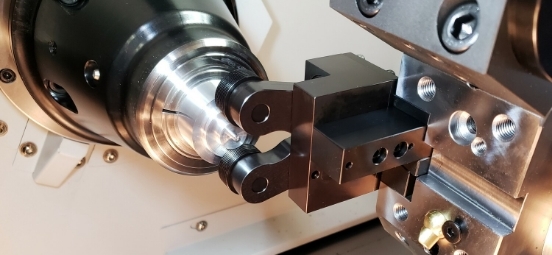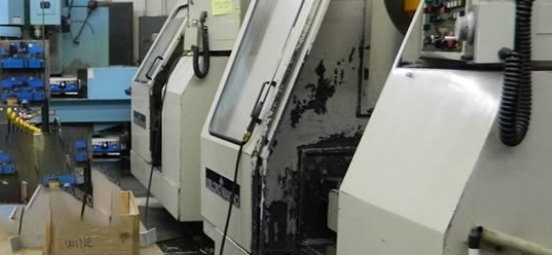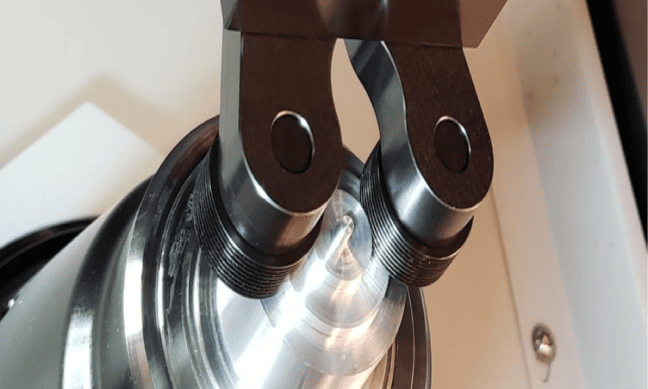Revolutionizing Metal Fabrication: The Impact of CNC Router Technology
Computer numerical control (CNC) routers are advanced cutting machines integral to modern manufacturing and fabrication industries. They automate the process of cutting, carving, and shaping materials, offering unprecedented precision and efficiency. This tool enables the creation of intricate designs and cuts that are beyond the capabilities of manual operations.
Accudyne Corporation is a leading company in the CNC router metal fabrication industry, renowned for its high-quality machining services and innovative solutions. We specialize in producing precision-engineered plastic and metal components, leveraging advanced technology and a commitment to excellence and meeting the diverse needs of our clients.
Benefits of CNC Router Metal Fabrication
CNC routers have revolutionized production processes, offering significant advantages over traditional methods. These include:
Enhanced Precision and Accuracy
Traditional metalworking methods often involve manual cutting and shaping, leading to inconsistencies and human error. In contrast, CNC routers are programmed to follow exact specifications, ensuring each cut is precise. This high level of accuracy minimizes material wastage and ensures that every component meets stringent quality standards.

Increased Efficiency and Productivity
Conventional fabrication methods can be time-consuming, requiring multiple steps and significant manual labor. CNC routers streamline the process by performing various operations — such as cutting, drilling, and milling — in a single setup. This reduces the time required to complete each task, allowing manufacturers to meet tight deadlines and increase production capacity. Additionally, CNC routers can operate continuously without fatigue, leading to higher output and reduced downtime.

Heightened Versatility and Flexibility
CNC routers can work with various metals — including steel, aluminum, copper, and titanium — accommodating different manufacturing needs. These machines can also execute multiple operations without requiring tool changes or reconfigurations. This allows manufacturers to handle diverse projects and adapt quickly to changing production demands.

Elevated Cost Savings
While the initial investment in CNC router technology can be substantial, the long-term cost savings are considerable. This technology minimizes material waste through precise cutting, which reduces the amount of scrap and optimizes material usage. Its accuracy and consistency also mean fewer errors and rework, saving time and money. Additionally, automation reduces the need for manual labor, lowering labor costs and minimizing the risk of workplace injuries.

Enhanced Safety
Traditional metalworking methods often involve manual handling of tools and materials, increasing the risk of accidents and injuries. On the other hand, CNC routers are fully automated and operated from a safe distance, reducing the need for direct human intervention. Advanced safety features, such as emergency stop buttons and protective enclosures, further enhance the safety of operations.

Guaranteed Consistency and Repeatability
Once a CNC router is programmed with specific parameters, it can produce identical parts with the same high level of accuracy every time. This is particularly important in industries such as aerospace, automotive, and electronics, where even minor deviations can lead to significant issues. CNC routers ensure that each part meets specifications, enhancing product quality and reliability.

Reduced Setup Time
Setting up traditional metalworking machinery can be time-consuming, often involving multiple adjustments and trial runs. CNC routers, on the other hand, require minimal setup time. Once the design parameters are programmed into the computer, the machine is ready to operate, significantly reducing downtime between projects. This allows manufacturers to complete jobs more quickly and easily switch between different tasks, improving overall workflow and productivity.

Enhanced Sustainability
The precision and efficiency of CNC routers result in less material waste, reducing the environmental impact of production processes. Additionally, CNC machines often consume less energy than traditional metalworking machinery, further minimizing their carbon footprint. This allows manufacturers to align with sustainable practices and reduce their environmental impact.

Applications of CNC Routers Across Industries
CNC router metal fabrication has become indispensable in numerous industries due to its precision, versatility, and efficiency. Some of its applications are:
- Automotive: engine and suspension parts, transmission components, chassis elements, custom body panels
- Aerospace: aircraft fuselage sections, turbine blades, structural elements, landing gear components, wing spars
- Electronics and semiconductors: circuit boards, metal casings, heat sinks, connectors, enclosures
- Construction and architecture: custom metal components, decorative panels, structural elements, staircases, railings, facades
- Furniture and woodworking: furniture parts, cabinetry, moldings, decorative items, custom furniture, wooden sculptures
- Medical and healthcare devices: surgical instruments, prosthetics, orthopedic implants, diagnostic tools, medical device components, dental implants
- Marine and shipbuilding: propellers, hull sections, interior fittings, deck components, bulkheads, ship parts
- Artistic and decorative applications: sculptures, signage, ornamental designs, custom artwork, decorative panels, 3D forms
Latest Developments in CNC Router Technology
CNC routers have undergone significant advancements in recent years. Here are some of the latest trends shaping the landscape:
